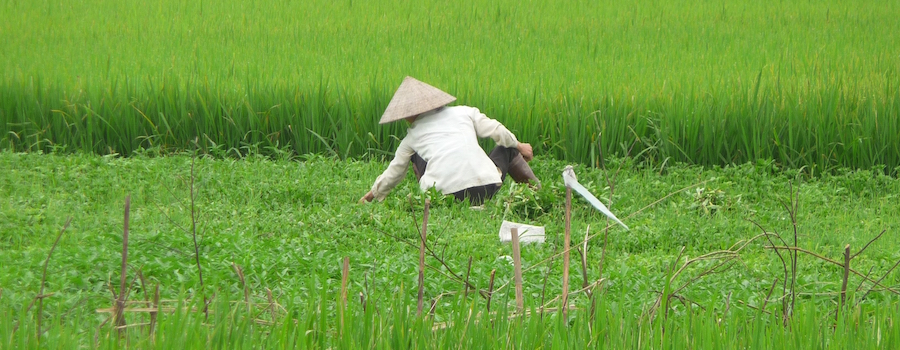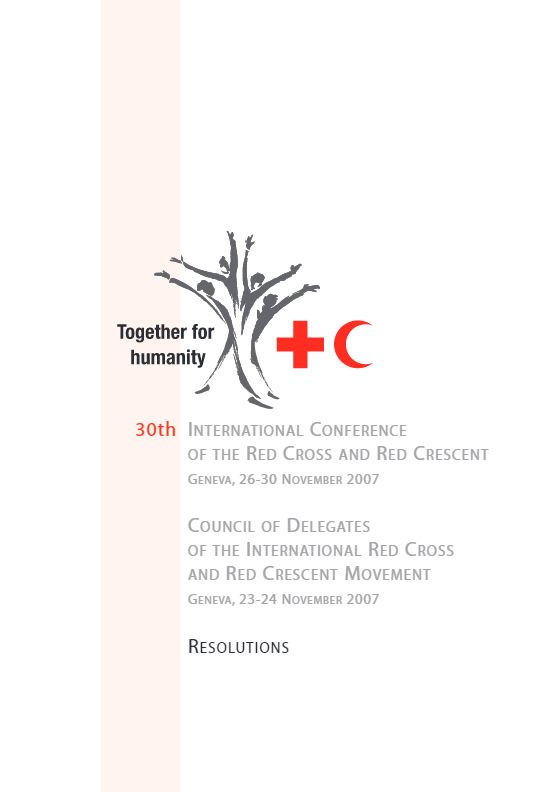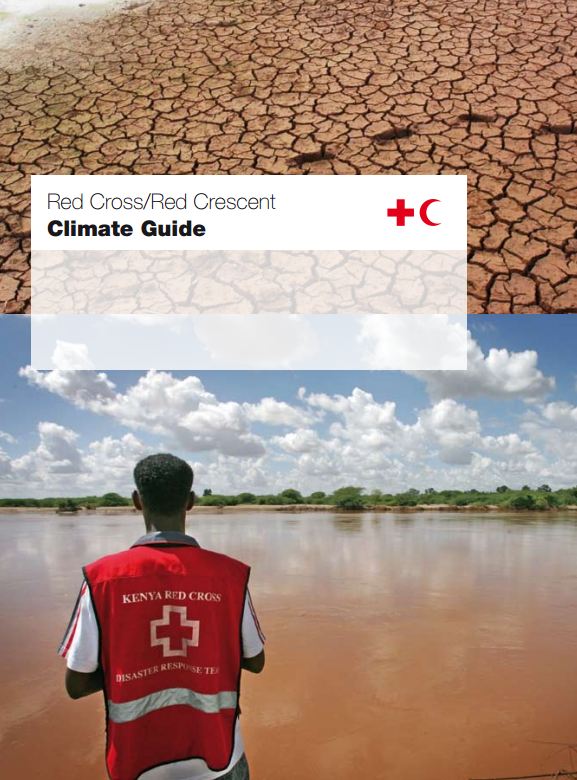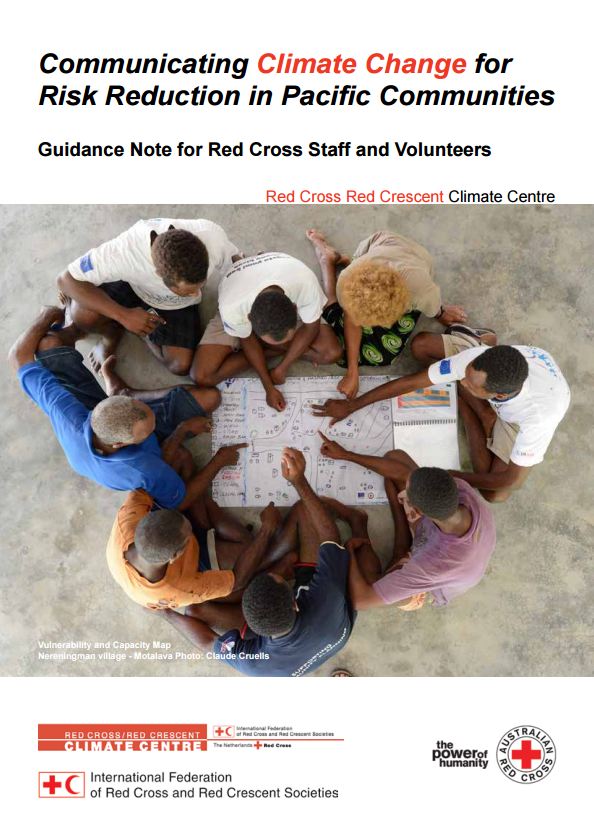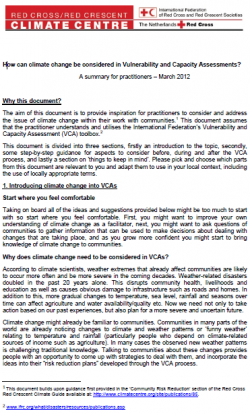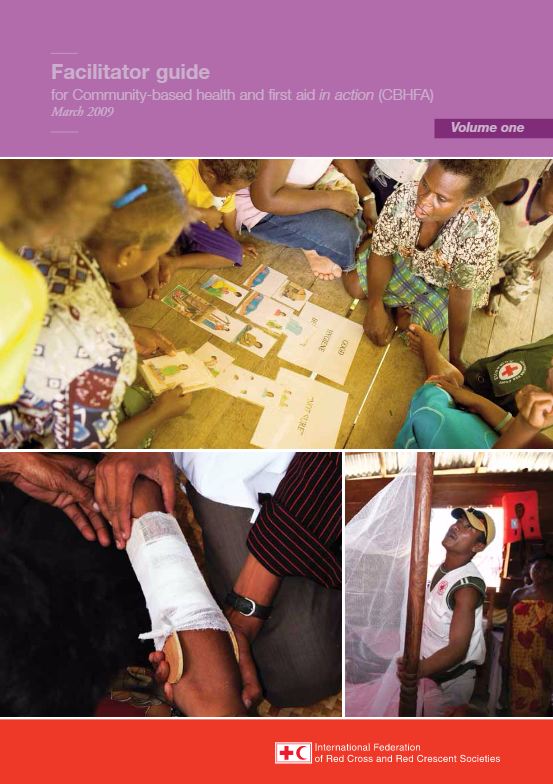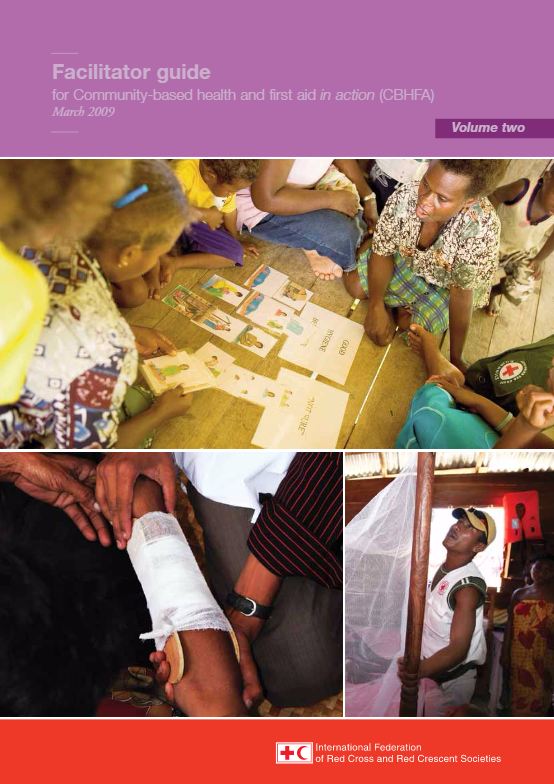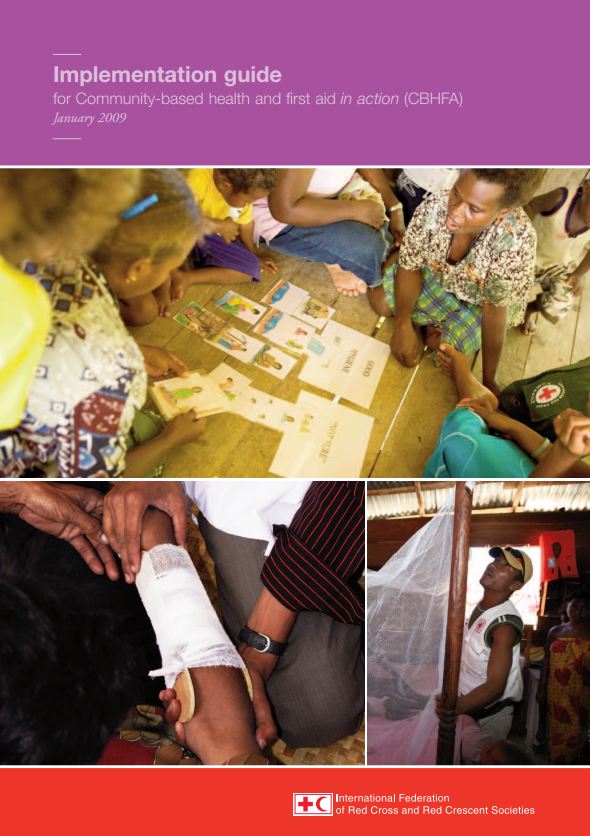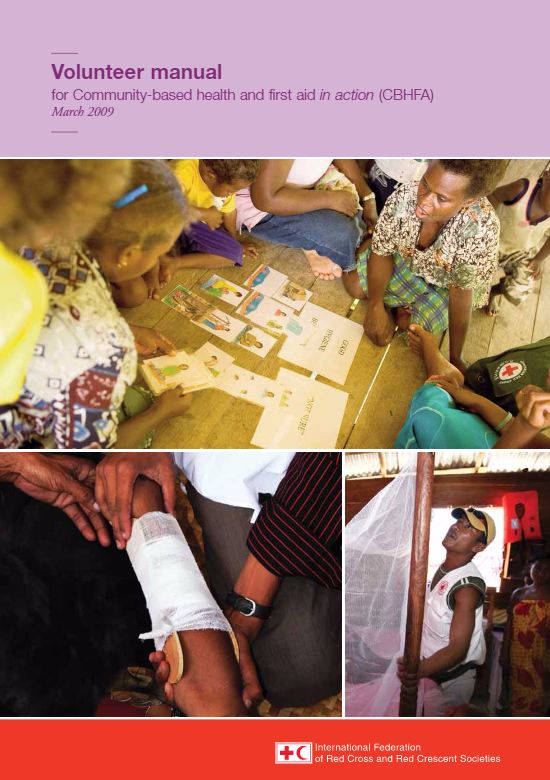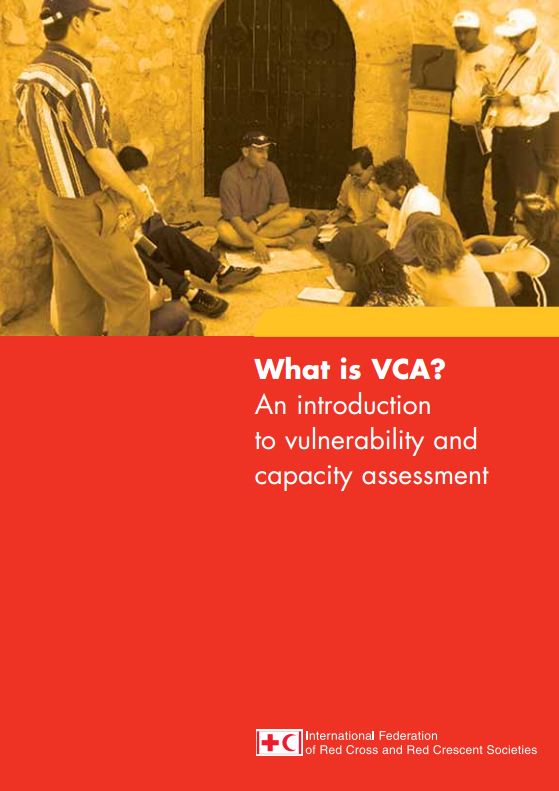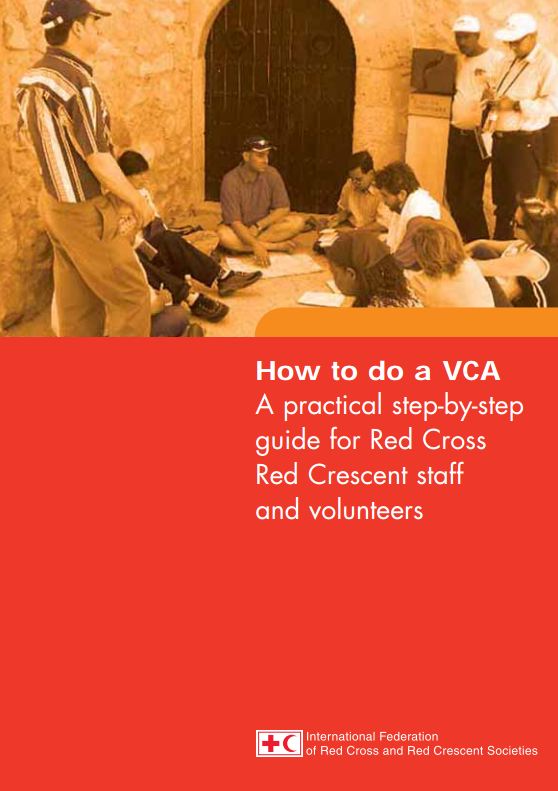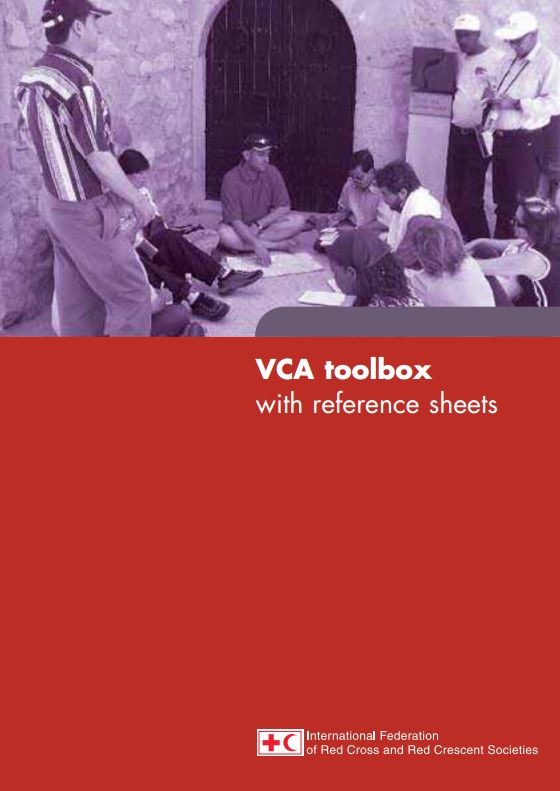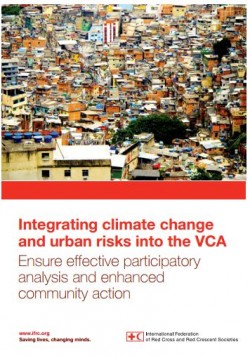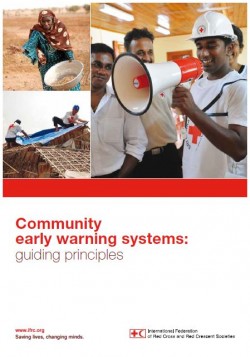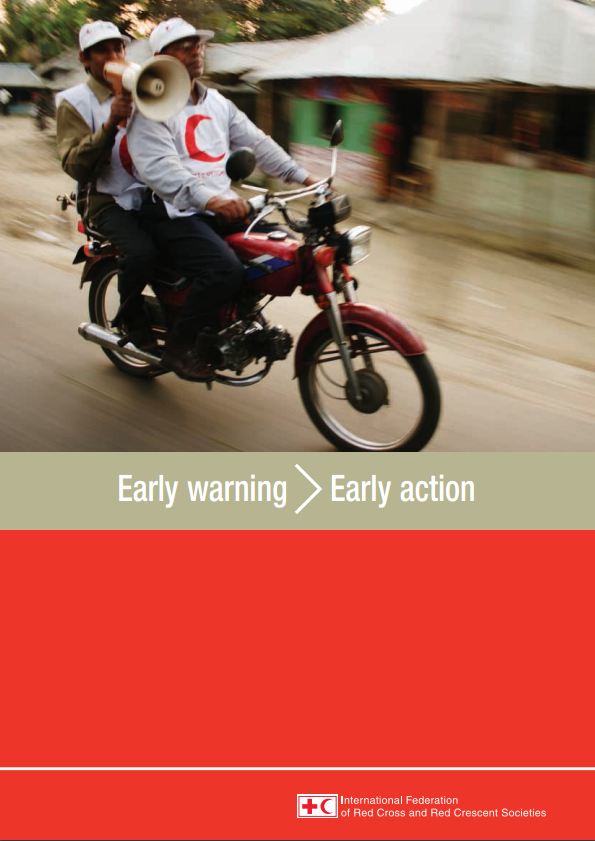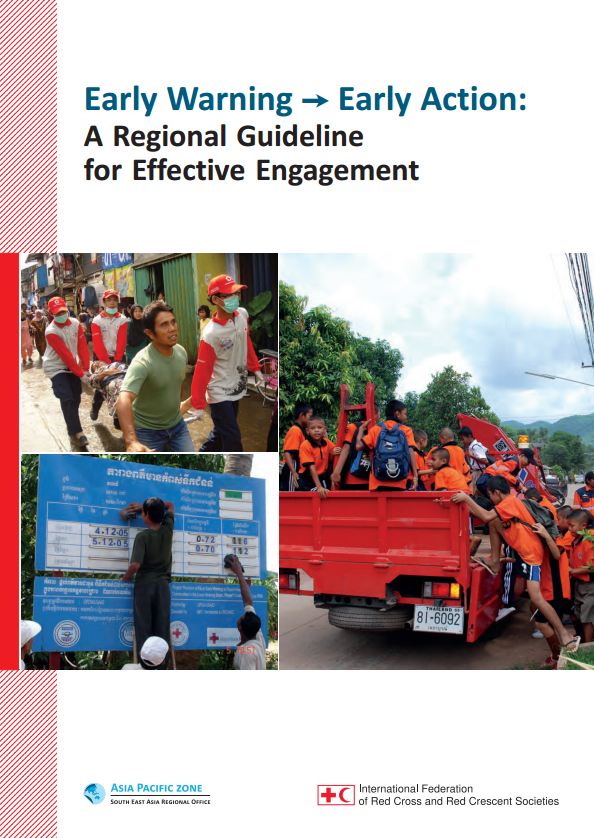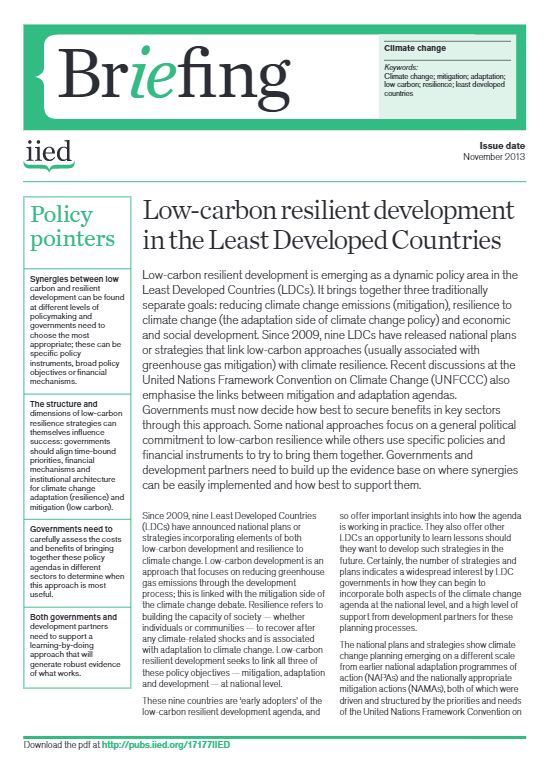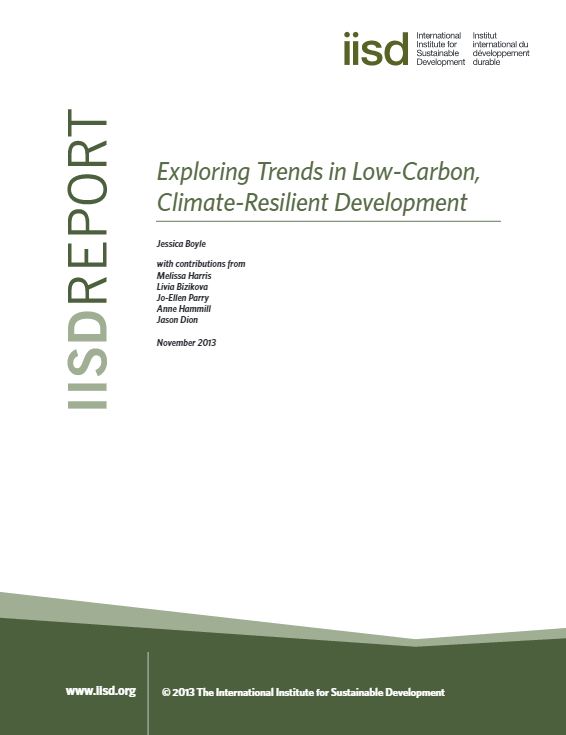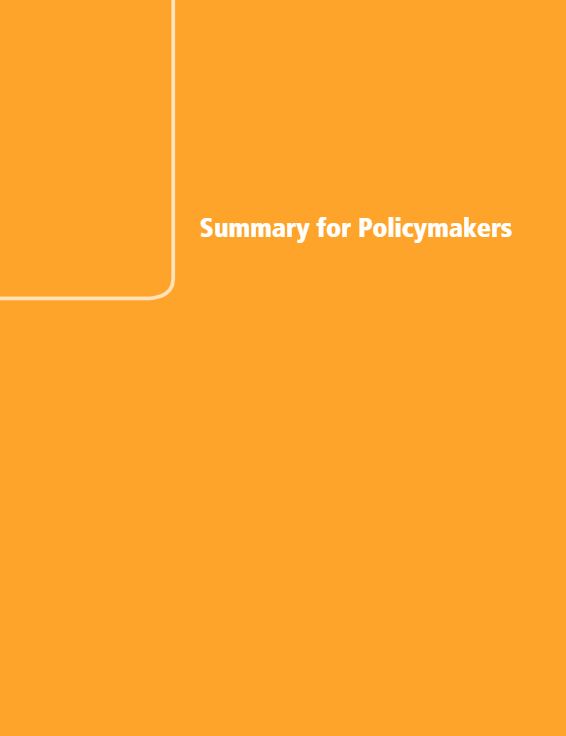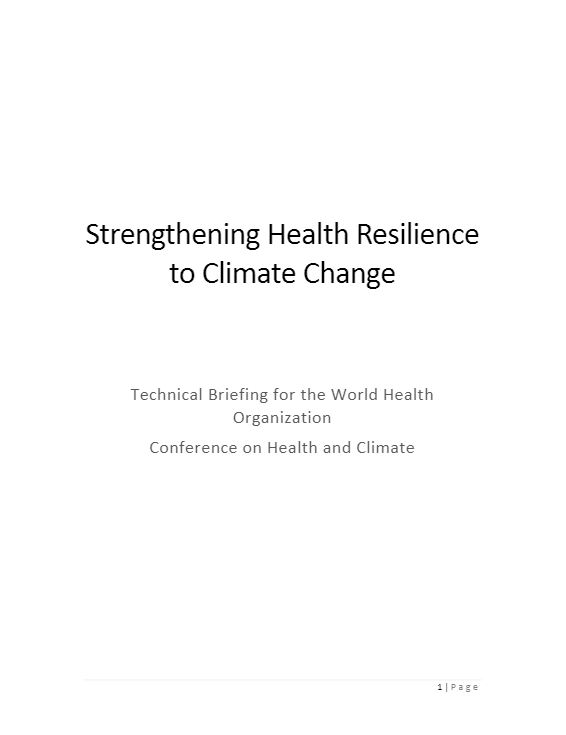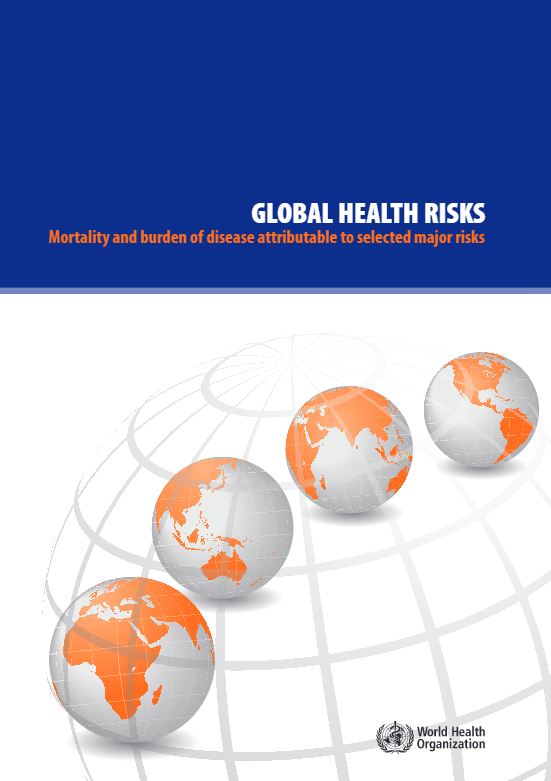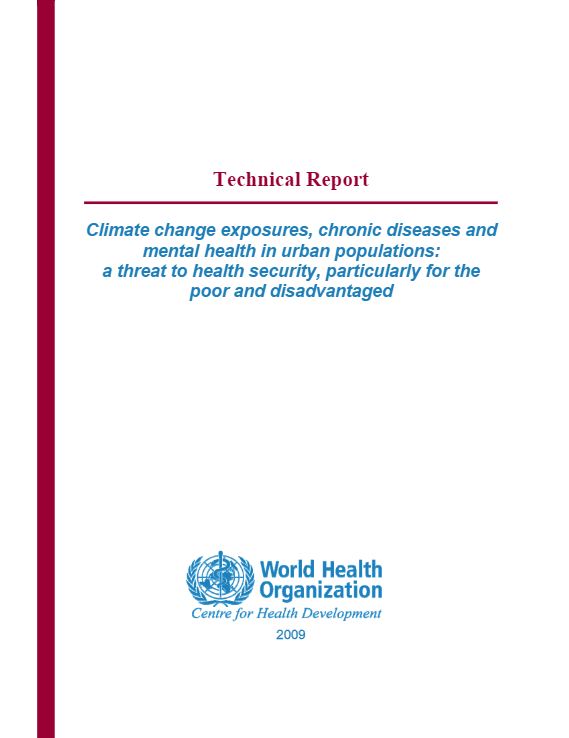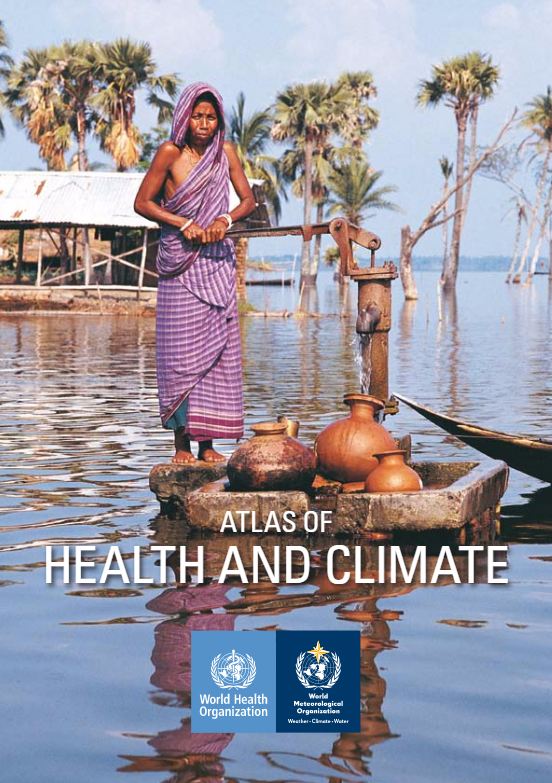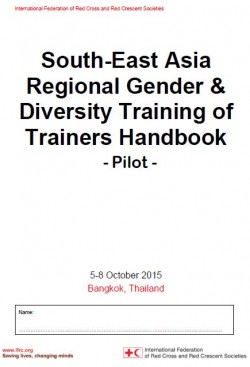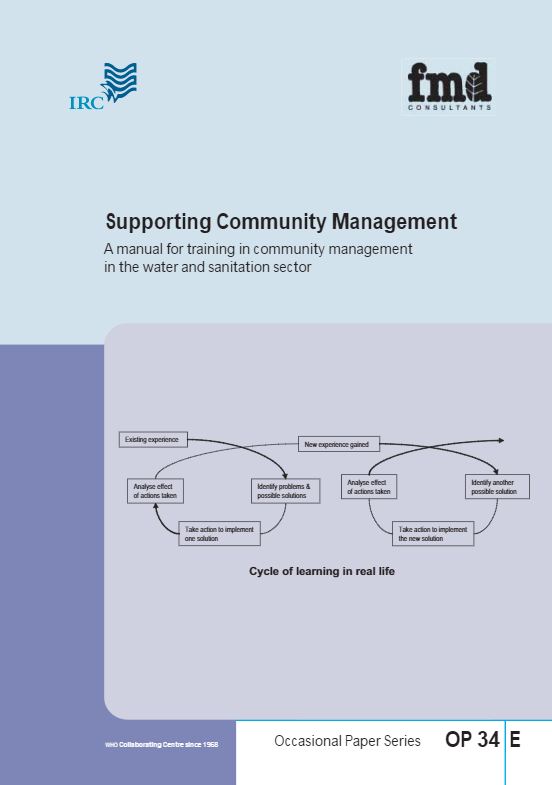Climate Change online courses available on IFRC Learning Platform are:
Coming soon!
- Storify links: https://storify.com/SM4Resilience/climate-change-master-training-2014, narrates the South East Asia Climate Change Master Training of Trainers organized in September 2014.
- Facebook group: https://www.facebook.com/groups/1501584126755564/, is a group that connects all the participants of the training mentioned above, discussions on climate change related issues are held. See below:
Red Cross Red Crescent Southeast Asia Climate Change Group
The climate training kit 2016
This Training Kit is adapted for Community Based Climate Smart Programming and developed as a tool to guide implementers in facilitating climate smart programming in communities. It is primarily intended for Project Managers, Project Officers, Red Cross Volunteers and Community Leaders who are directly responsible for implementing climate smart programming in vulnerable communities and are responsible for organizing safer villages and facilitating climate smart risk reduction plans. Careful thought was done to ensure that information contained in the training kit is relevant to support community planning. It is hoped that users of the kit will find the information useful in facilitating planning with communities and for other purposes such as in developing curricula for climate change training.
The training kit was adapted from the South East Asia Climate Change Master Training of Trainers organized in September 2014 by IFRC and Red Cross Red Crescent Climate Center and improved with various inputs from National Societies.
Recommendations:
- Flexibility should be exercised when using the Training Kit. The success of the methods and tools described in the kit depends on the user’s ability in adapting them to the specific context and on the quality of his/her facilitation. There will be times when the facilitator and reader are tempted to mechanically follow the course design, recommended steps and activities in the kit. It is suggested that (training) needs assessment is done before facilitating or conducting the training/activity and that feedback or assessment is conducted immediately after the training/activity in order to further improve the material before moving on to the next activity or village.
- The Facilitator should continually enrich the guide with lessons learned from implementing pilot projects. The methods and tools should be updated to guide future climate change adaptation and mitigation projects. Comments and feedback from users and other readers alike is encouraged and appreciated.
- Introduction session
- Session 1: Climate change basic terminologies
- Session 2: Basic science and facts on climate change
- Session 3: Roles, position and RCRC engagements in climate change
- Session 4: Introduction to climate change adaptation (CCA) & mainstreaming CCA
- Ready Game
- Session 5: Assessing climate risk / community risk assessment
- Session 6: Early warning early action
- Session 7: Public awareness public education
- Miscellaneous: International Research Institute (IRI) and El Nino
- Session 8: Climate change mitigation
- Session 9: Climate finance
- Session 10: Health and climate change
- Session 11: Gender and climate change
- Session 12: Engaging in the National Adaptation Planning process
- Session 13: Tips on facilitating and managing training
- Session 14: Developing plan of action
Resources:
- Managing climate extremes and disasters in Asia
- Summary for policymakers on climate change 2014 – impacts, adaptation, and vulnerability
- Summary for policymakers on managing the risks of extreme events and disasters to advance climate change adaptation
- Southeast Asia Climate Trends 2012
- Video: World could be 4 degrees hotter by the end of this century
- Mainstreaming climate change adaptation: A practitioner’s handbook – Care in Vietnam
- Entry points for considering climate change in National Society programmes
- Climate change adaptation mainstreaming checklist – German Red Cross
- DRR and Climate change adaptation – German Red Cross
- Case study: Bridging the gap – integrating climate change and disaster risk reduction – IFRC
- A guide to mainstreaming DRR and climate change adaptation (2013) – IFRC
Resources:
- Climate Guide (2007) – Red Cross/Red Crescent Climate Centre
- Communicating climate change for risk reduction in Pacific communities – Guidance note for Red Cross Staff and Volunteers – Red Cross/Red Crescent Climate Centre
- How can climate change be considered in Vulnerability and Capacity Assessments? (2012) – Red Cross/Red Crescent Climate Centre
- Climate change and health (2009) – CCCD
- Managing health risks in a changing climate: Red Cross operations in East Africa and Southeast Asia (2014) – Coughlan de Perez, et al.
- Health impacts of climate change: Adaptation strategies for Western Australia – Department of Health, Australia
- Guiding minimum standards on climate smart community based health programming
- Dengue Turning Up the Volume on a Silent Disaster (2014) – IFRC
- Human Health, Climate Change 2007: Impacts, Adaptation and Vulnerability (2007) – IPCC
- Health Risk Management in a changing climate – Red Cross/Red Crescent Climate Centre (see examples in Southeast Asia)
- Managing the Health Effects of Climate Change (2009) – UCL Lancet
- Strengthening Health Resilience to Climate Change – WHO
- Global Health Risks – Mortality and burden of disease attributable to selected major risks (2009) – WHO
- Technical Report – Climate change exposures, chronic disease and mental health in urban populations: a threat to health security, particularly for the poor and disadvantage – WHO
- Atlas of Health and Climate (2012) – WHO and WMO
Quiz | Quiz: Facilitator Guide
Group exercise: Communities and National Societies | Interactive session
Resources:
More References
[wpv-view name=”climate-change-document-view”]
![]()


